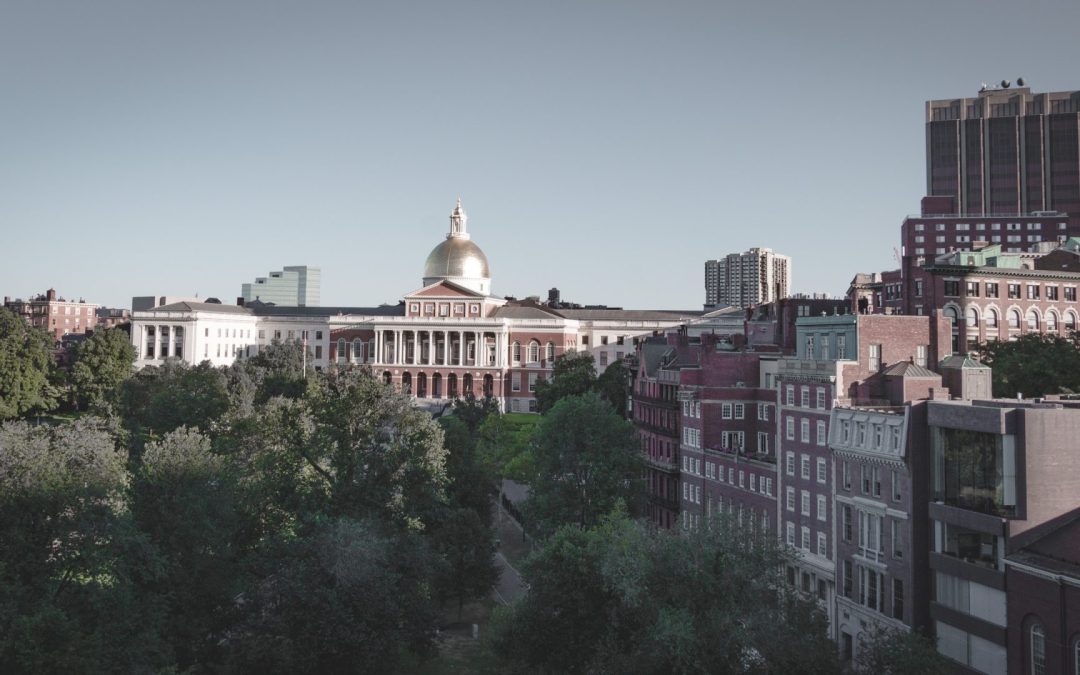The Massachusetts General Court will soon consider legislation to establish 14 or more peer-run respite centers in the Bay State, with a minimum of one in each county.
Rep. Lindsay Sabadosa, alongside Rep. Smitty Pignatelli, introduced the bill in the lower chamber in March. Unlike the Vermont General Assembly, Massachusetts’s legislature doesn’t adjourn after passing the budget for the new fiscal year that starts in July. Sabadosa expects the Mental Health, Substance Use and Recovery Committee’s hearings on H.3602 to begin in the fall.
In drafting the legislation, Sabadosa, who represents Northampton, partnered with a local organization, the Wildflower Alliance, which in 2012 opened Afiya, the state’s first peer respite.
“After I was elected, they came and sat down with me to tell me about the work that they were doing,” Sabadosa told Counterpoint. “I was very in love with the concept that you could have a sort of non-medicalized response to a crisis and that that could be really successful, building off of the experience of peers who actually have understanding of the situation.”
But “the thing that absolutely cemented” Sabadosa’s commitment to expanding the approach was testimony about Afiya from constituents, who “talked about how much peace it brought them and what a good experience it had been.”
Her bill would instruct the Massachusetts Department of Mental Health to contract peer-run organizations to establish and operate “voluntary, short-term residential programs that provide community-based, trauma-informed, person-centered support and prevention on a 24/hour basis in a homelike environment to adults, age 18 or older, who are experiencing emotional or mental distress either as an immediate precursor to or as a part of a crisis.”
Staff would consist of “individuals who are formally trained in the provision of peer support services, and who have psychiatric histories and/or have faced and navigated similarly life interrupting challenges.”
Two of the respites, in Hampden and Suffolk counties, would dedicate themselves specifically to “serving LGBTQIA+ individuals,” with a workforce from the same community. The Wildflower Alliance calls these “affinity peer respites.”
By Sabadosa’s account, the legislation has the support of the Department of Mental Health. “The biggest roadblock is always the question of money,” she said.
According to Sabadosa, the state pays $450,000 annually to support Afiya. Calling it “a significant investment,” she pointed out that peer respites typically operate out of single-family homes, “and so the cost of leasing or renting those properties can be very high in Massachusetts.”
In the budget for fiscal year 2024, Sabadosa proposed an unsuccessful amendment to allocate funding for two new peer respites. The 2025 budget, starting next July, would fund H.3602 if it passed.
Between now and then, Sabadosa hopes to convince other legislators that peer respites can eliminate pricier stays at emergency departments. The other key, she believes, will be to bring in witnesses who’ve experienced peer respites themselves.
“Those firsthand stories really are invaluable in situations like this,” she said. “I mean, I can sit there and tell you all day that it’s a great idea, but someone who’s actually stayed at Afiya is going to give you a much better idea of what that really meant in their life.”
Ephraim Akiva, the director of Afiya, told Counterpoint that he envisioned the Wildflower Alliance submitting a bid to run the entire network of new peer respites in the event of H.3602’s passage. But he also described the statewide expansion proposed by the bill as a “long-term goal.”
In the short term, he wants DMH to fund one of the aforementioned LGBTQIA+ respites out of its current budget, before any legislative action that would compel it to do so. He intends to site the facility in Holyoke.
Akiva described Sabadosa’s legislation as, in part, a “strategy” to “put more pressure” on DMH to take initiative.
“It’s getting more interest out there,” he said. “People who had no idea what peer respite was now know what it is.”
Akiva, who identifies as queer and trans, came up with the idea for the affinity respite, which he claimed would be the first of its kind anywhere.
“I see my people suffering all of the time,” he said. “We’re seeing unprecedented attacks on trans folks in particular right now.”
In addition to Afiya, Massachusetts currently hosts two other peer respites, operated by Kiva Centers, in Worcester and Bellingham.

